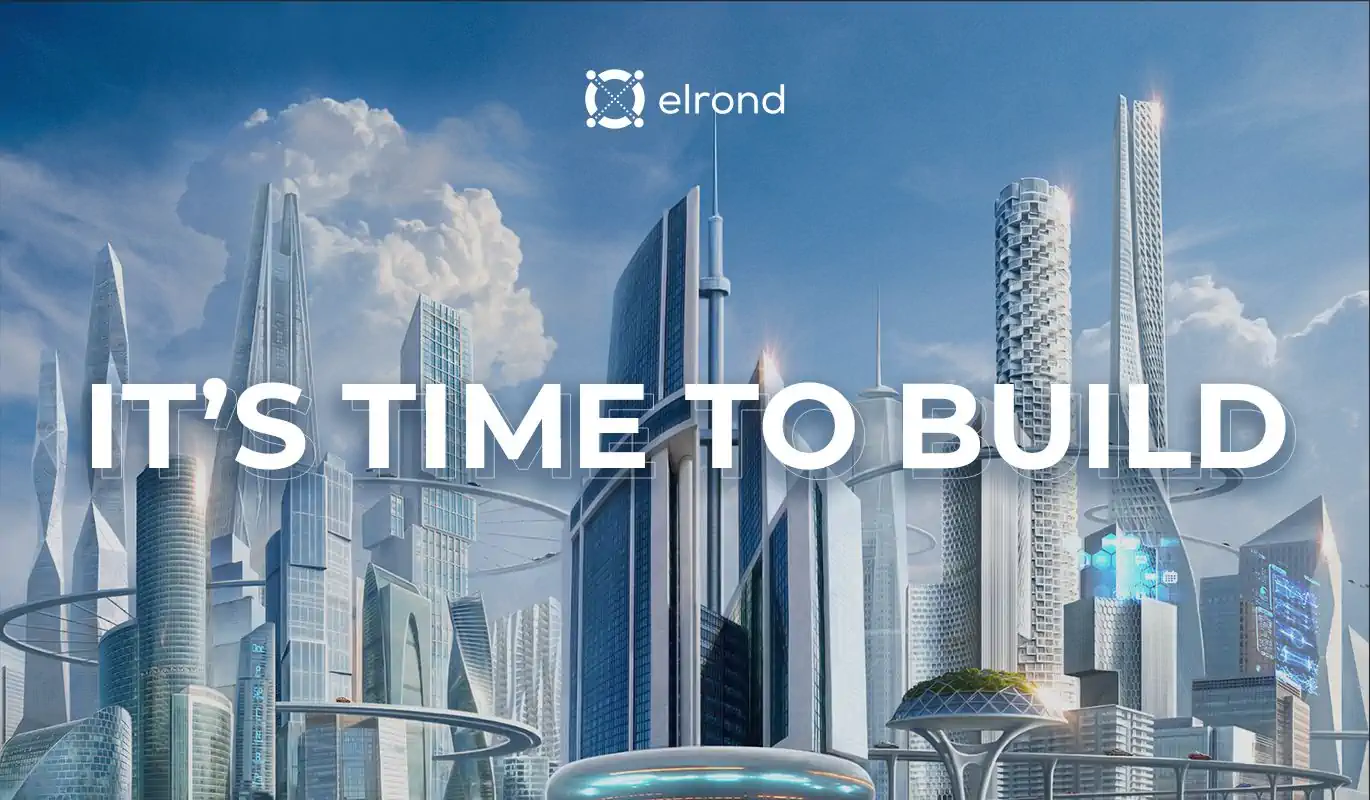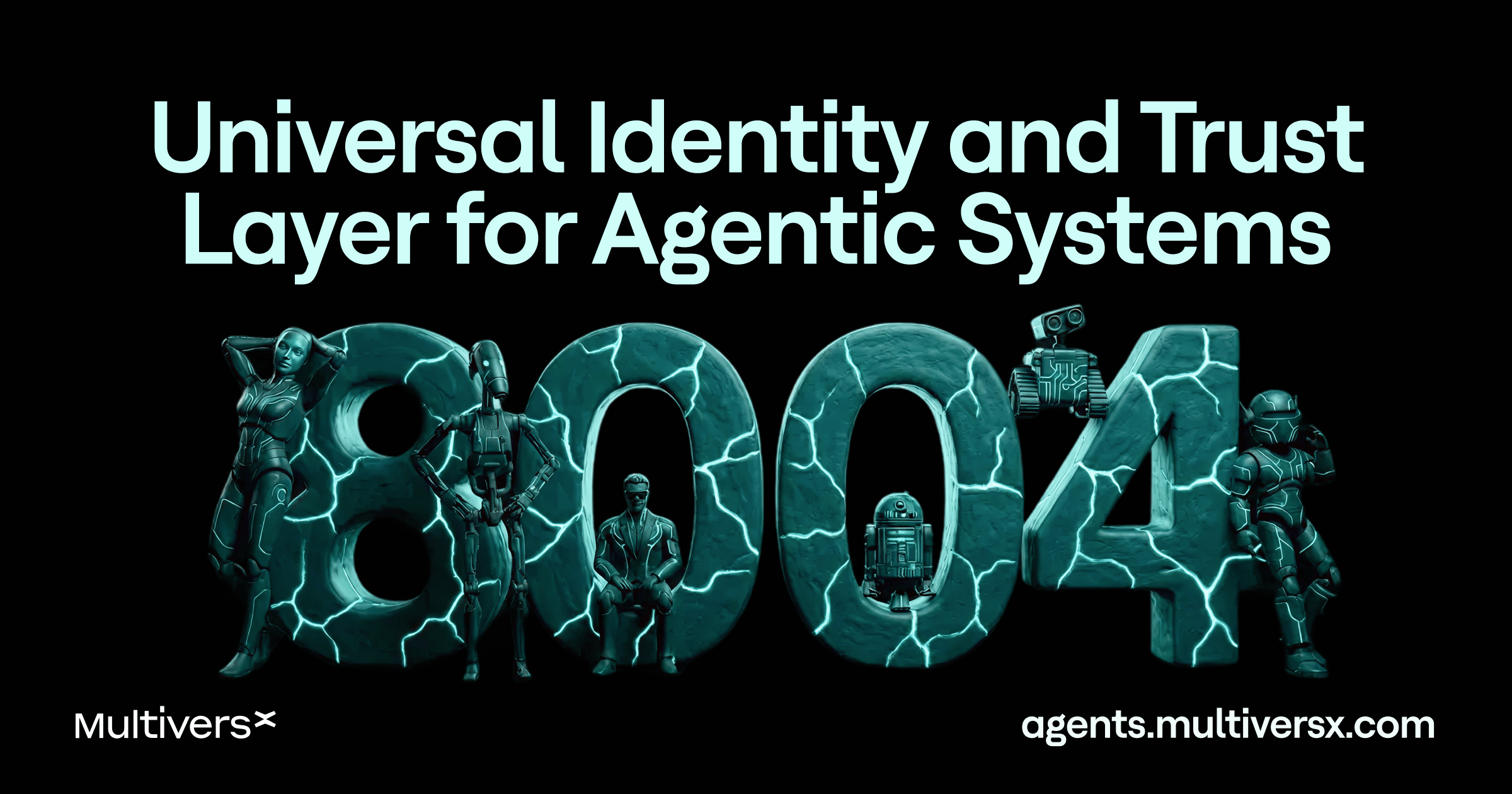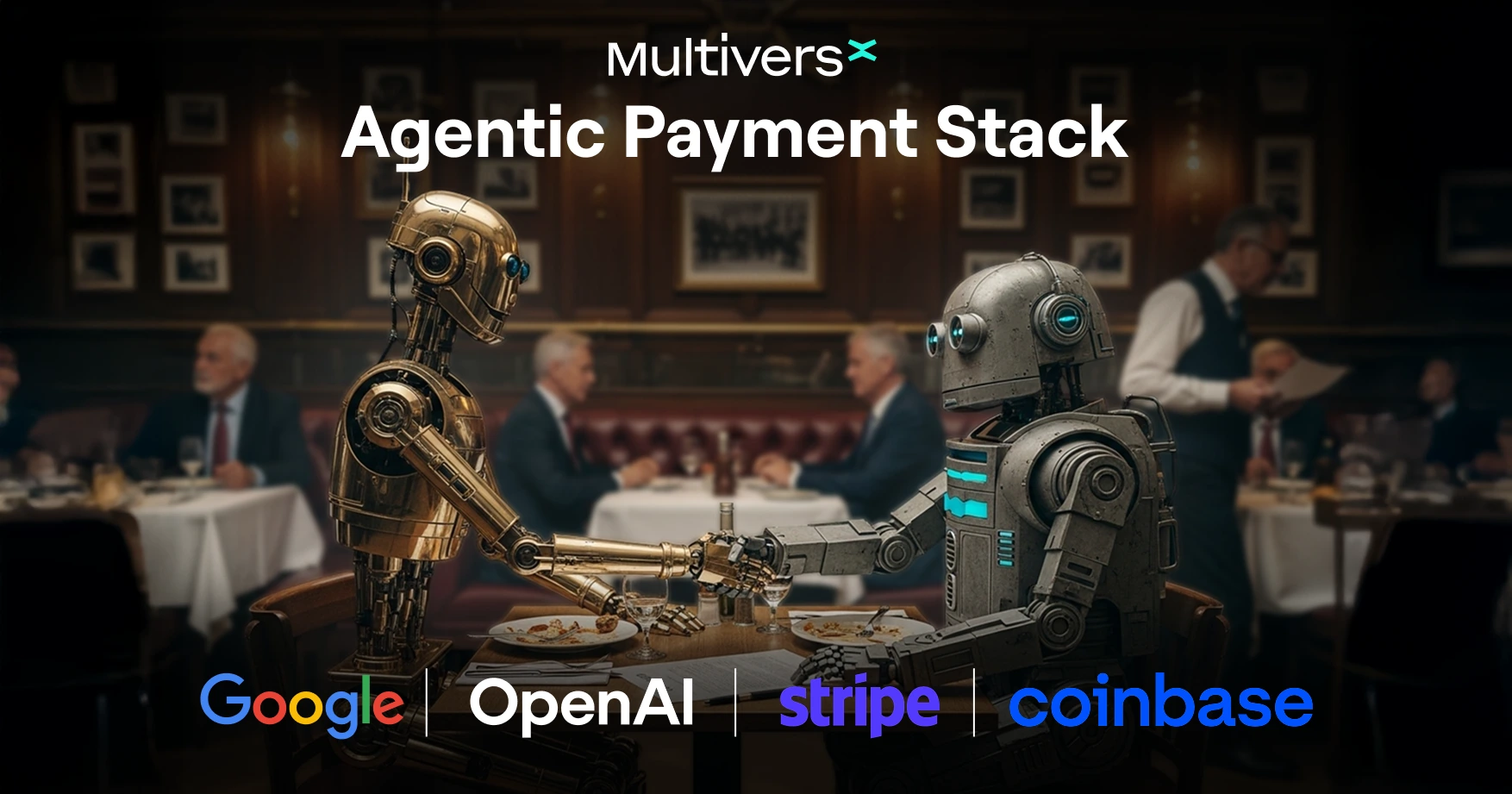

It’s time to build. Introducing the Innovations Of The Elrond Architecture And Our Developer Toolkit
- Blockchain: State, TX & network sharding, 16k TPS, 6s latency, $0.001 tx fee
- Smart Contracts: 30% gas as royalties, fast, small, composable, upgradable
- Smart Accounts: associated data trie, key-value storage
- Tokens & TXs: low transfer fees, relayed/gasless TXs, true token ownership
- Build: Rust framework for SCs, WASM VM, VS Code IDE, dApp boilerplate

Whether you're a startup or enterprise company, integrating blockchain technology into your existing or future products could boost efficiency, reduce costs, and increase security while enabling new avenues for revenue increase. Thus, selecting the appropriate blockchain to build your next projects could play an essential part in its success.
Elrond is a high-throughput smart contract execution platform with robust security, stemming from technological breakthroughs such as Adaptive State Sharding and Secure Proof of Stake, as well as a sustainable economic model.
The platform is live now, and the 16,200 transactions per second(scaling to hundreds of thousands), 6s latency and $0.001 transaction cost are compelling numbers on their own. Yet Elrond’s appeal for businesses and startups comes from innovations on smart contracts, smart accounts, and tokens, enabling a broad spectrum of diverse on-chain products to be created, with tools that lower development time and costs.
Smart Contracts
Elrond SCs are easy to write, lightweight but feature-rich, fast to execute, and lucrative, thanks to the following properties:
- Royalties: 30% of the gas spent on smart contract calls go to its author at no extra cost for the caller. Imagine Uniswap on Elrond. SC ownership is transferable and the royalties redirectable.
- Upgradeability: Elrond smart contracts can be upgraded to fix bugs and add features.
- Composability: asynchronous calls between smart contracts located on any shard are possible at predictable and deterministic gas costs.
- Speed: The Arwen WASM VM is one of the fastest in the space. Moreover, it provides Ahead of Time compiling, effectively caching frequently used SCs to save on compilation times when called, boosting performance by an extra 10x on top of its already high execution speed.
- Footprint: the actual size of a smart contract on the blockchain is very small compared to other architectures, thanks to our Rust framework that has been heavily optimized for this goal.
Elrond Smart Accounts
Accounts on other blockchain architectures have an address, nonce, and balance in the native account. Elrond accounts also have an associated data trie, which enables key-value storage at the account level.
Key-value storage use-cases:
- Internal updates: An owner can store large amounts of rich information in their account, such as email, BTC address, social network info, or hashes for private data pertaining to identity, health data, or other sensitive info
- External updates: information such as KYC status, citizenship, various memberships, or flags pertaining to third party systems can be added by third-party smart contracts in plain or encrypted form
- True ownership: digital assets can be attached directly to an account, instead of bloating the state of various smart contracts governing them
Elrond Standard Digital Tokens (ESDT)
The ESDT token model enables true ownership of assets, advanced programmability, and low transfer fees, making it an essential foundation for building more efficient and robust DeFi products.
- Inexpensive token transfers: made possible by protocol built-in functions which enable tokens to be moved from one account to the other without invoking a smart contract and paying the associated fees
- Stablecoins and other tokens are thus transferable at a much lower cost when compared to other blockchains, making Elrond an essential player in the advancement of DeFi
In addition to ESDT tokens, non-fungible tokens (NFTs) will be a big part of the Elrond economy, with an extra appeal for those looking for true ownership and creative scenarios enabled in tandem with smart accounts.

Developer Toolkit
Developer teams looking to integrate Elrond’s unique capabilities in their creative DeFi and other types of decentralized products have their productivity and efficiency supported by a rich toolset, extensive examples, templates, and boiler-plate code, as well as comprehensive documentation.
The Elrond SDK & tools:
- Rust SC framework: provides the shortest path to creating and migrating smart contracts using the Rust language
- erdpy: a Python CLI tool that also enables programmatic interaction with the Elrond blockchain. Moreover, it serves as the backend for the Elrond IDE
- erdjs: TypeScript / JavaScript helpers and utilities for interacting with the Elrond network in general and with smart contracts in particular, with extra helpers for dApp front-ends
- erdgo: Helpers and utilities for interacting with the blockchain using the Go language
- erdjava: Helpers and utilities for interacting with the blockchain using the Java language
- Mandos: a declarative testing framework with support for both short tests that simply check how a transaction changes the storage, and for long and complex scenarios
- API infrastructure: rich APIs and dedicated API infrastructure for interacting with a one-chain view of our sharded architecture
- dApp boiler plate: Lightweight React application, integrated with the Elrond blockchain, containing examples of smart contract interactions and transaction dispatching using either a Ledger for signing or our wallet dapp API
- Elrond IDE: a VS Code extension providing any blockchain & non-blockchain developer with a familiar interface, easy access to deploying a local devnet, templates, code samples, debugging, and testing
Our mainnet has reached a point where all the above features are ready to be activated. The Elrond development tools have been refined and improved, and each individual component will be introduced in detail over the next few weeks, along with unique integration success stories. The first item to explore is the Elrond IDE, which you can find explained with practical examples in this video guide:
We encourage you to follow this dev intro series to discover Elrond’s unique properties and toolset. You are also welcome to join our community:
- GitHub - https://github.com/ElrondNetwork
- Documentation - https://docs.elrond.com
- Community - https://t.me/ElrondDevelopers
It's time to build.






